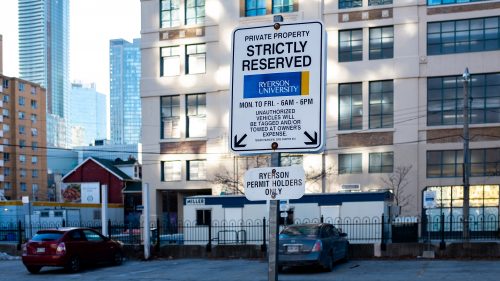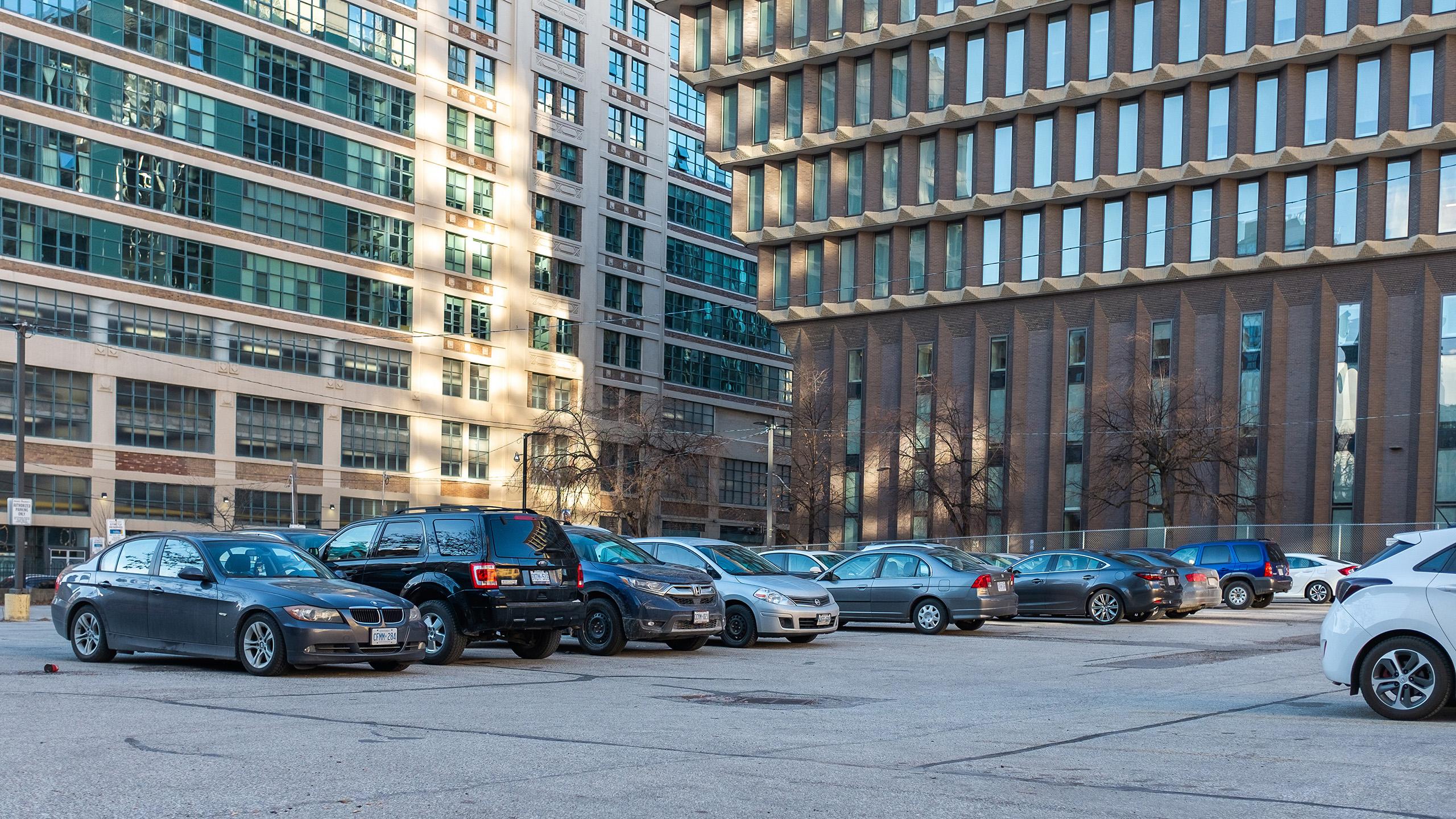By Benjamin Hargreaves
Ryerson University’s proposal to rezone a parking lot would see some campus parking spaces eliminated, and might discourage students from driving to campus, experts say.
The Eyeopener previously reported Ryerson submitted an application on Dec. 21 to rezone a parking lot located at 202 Jarvis St. to allow for the development of a 41-storey building. It will house classrooms and lab space for the Faculty of Science as well as new residences.
Ryerson currently has a total of 740 on-campus parking spots, said media relations officer Jessica Leach. These are located in the Victoria parking garage, Pitman Hall residence and International Living & Learning Centre (ILC) residence.
With the loss of 189 spaces in the Jarvis Street parking lot and the addition of 153 spaces for the Daphne Cockwell building—slated to open in 2019—the number of on-campus parking spots will be 704.
There are 1,362 parking spaces in 10 parking facilities near campus, according to the application’s transportation impact report.
Curbing car parking is a clear focus in the application to rezone the Jarvis St. parking lot.
“To discourage automobile travel and encourage the use of alternative modes of transportation, the proposed development will not have on-site vehicular parking,” it reads.
The building’s proposal includes parking for 1,192 bicycles and three accessible vehicular parking spots.The development will also have pick-up and drop-off areas.

The application called the Jarvis Street lot “an underutilized surface.”
Reducing parking availability is a common tactic utilized by cities and developers to deter drivers and increase the use of transit systems, said interim director of Ryerson’s school of urban and regional planning Mitchell Kosny.
He pointed to the Rogers Centre, which was intentionally built without a large amount of on-site parking and easy access to public transit.
“Rather than making it easy and encouraging people to drive, you try and make it difficult and change people’s behaviour,” Kosny said.
Few Ryerson students use the parking spaces in the Jarvis Street lot, according to Tesfazgha, an employee who has worked in the tollbooth for over two years. He declined to give his last name.
“This lot might be too expensive for students,” he said. “It’s mostly construction workers who park here.”
According to Ryerson’s website, of the three university-owned public parking lots, the 202 Jarvis St. and 160 Mutual St. lots each cost $4.00 per half hour.
The lot located at 300 Victoria St., above the campus bookstore, is $3.50 per half hour.
“The development will not have on-site vehicular parking”
Ryerson also has a permit-only lot of 65 spots located under the ILC residence, where students pay $1,312 for unlimited parking for both the fall and winter terms.
“I avoid [parking on campus] at all costs literally because of the cost,” said fourth-year student Carling Hunt.
She said she almost exclusively parks on Church Street between Gould and Gerrard streets when she drives and doesn’t consider on-campus lots. Hunt said she believes reducing parking on-campus may be beneficial.
Blair Scorgie, director of business development at SvN Architects + Planners and a contract lecturer at Ryerson’s school of urban and regional planning, said he is glad to see Ryerson recognizing the shift from personal vehicles to sustainable commuting methods.
“We certainly cannot view a large surface parking lot within a downtown university campus as the most desirable use of land,” he said.
The City of Toronto is currently reviewing the rezoning application.













Leave a Reply